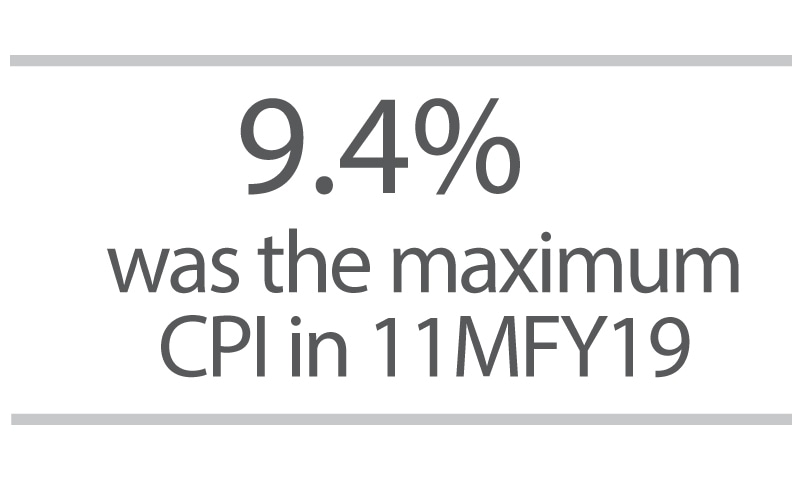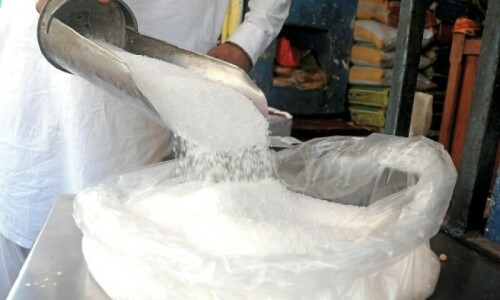KARACHI: Consumers, already braving higher food prices, may see considerably higher inflation in FY20 amid any adjustments in energy prices, volatility in international oil markets along with rationalisation of taxes, the Pakistan Economic Survey 2018-19 projected.
The survey estimates headline Consumer Price Index (CPI) inflation to hover between seven to eight per cent in FY19. High utility prices, rising input costs and falling rupee against the dollar may mount further pressure on inflation in the coming months.
According to the latest survey published by the Ministry of Finance, the economy has witnessed demand pressure owing to persistent increase in the fiscal deficit during the last two years.
It may be noted here that the industry people had been pressurising the government for lowering the cost of doing business through cuts in various taxes and duties to curb food inflation.
However, the country has been witnessing demand push inflation as market forces resort to hoarding and create artificial food crisis.
The impact will be more visible in non food prices. The report expects price stability in case the provincial and federal governments ensure effective monitoring of prices and smooth supply of essential items.
In March this year, inflation surged to 9.4pc before slowing down to 8.8pc in April 8pc. The pressures on headline inflation are explained by adjustment in prices of electricity and gas, a significant increase in the perishable food prices, exchange rate depreciation along with reversal of global fuel prices.

The biggest driver of CPI was core inflation which has been on a rising trend since March 2018. The gradual buildup of domestic demand, fanned by past expansionary monetary and fiscal policies, was the main factor behind the rising core inflation, which grew to 8.5pc in March. It later dropped to 7pc in April (after remaining above 8pc during last seven months) as monetary tightening by the present government started to take effect.
Although deceleration in core inflation is a welcome development, this may be a short-term relief as some measures (significant rupee depreciation, unfreezing of energy prices, etc) taken by the government to stabilise the economy will have an adverse near-term effect on CPI.
Core inflation is measured through the indices of 43 non-food non energy items. Non-food non-energy price levels are calculated by excluding food group and energy items (kerosene oil, petrol, diesel, CNG, electricity and natural gas) from the CPI basket. This head remained sticky since the start of current fiscal year and reached 8.8pc in February — the then highest in last seven months of 2018-19.
The downward trend started in March and April when it slowed down to 7pc, while on average during July-April FY19, it is recorded at 8.11pc compared to 5.60pc of FY18.
Published in Dawn, June 11th, 2019
















































